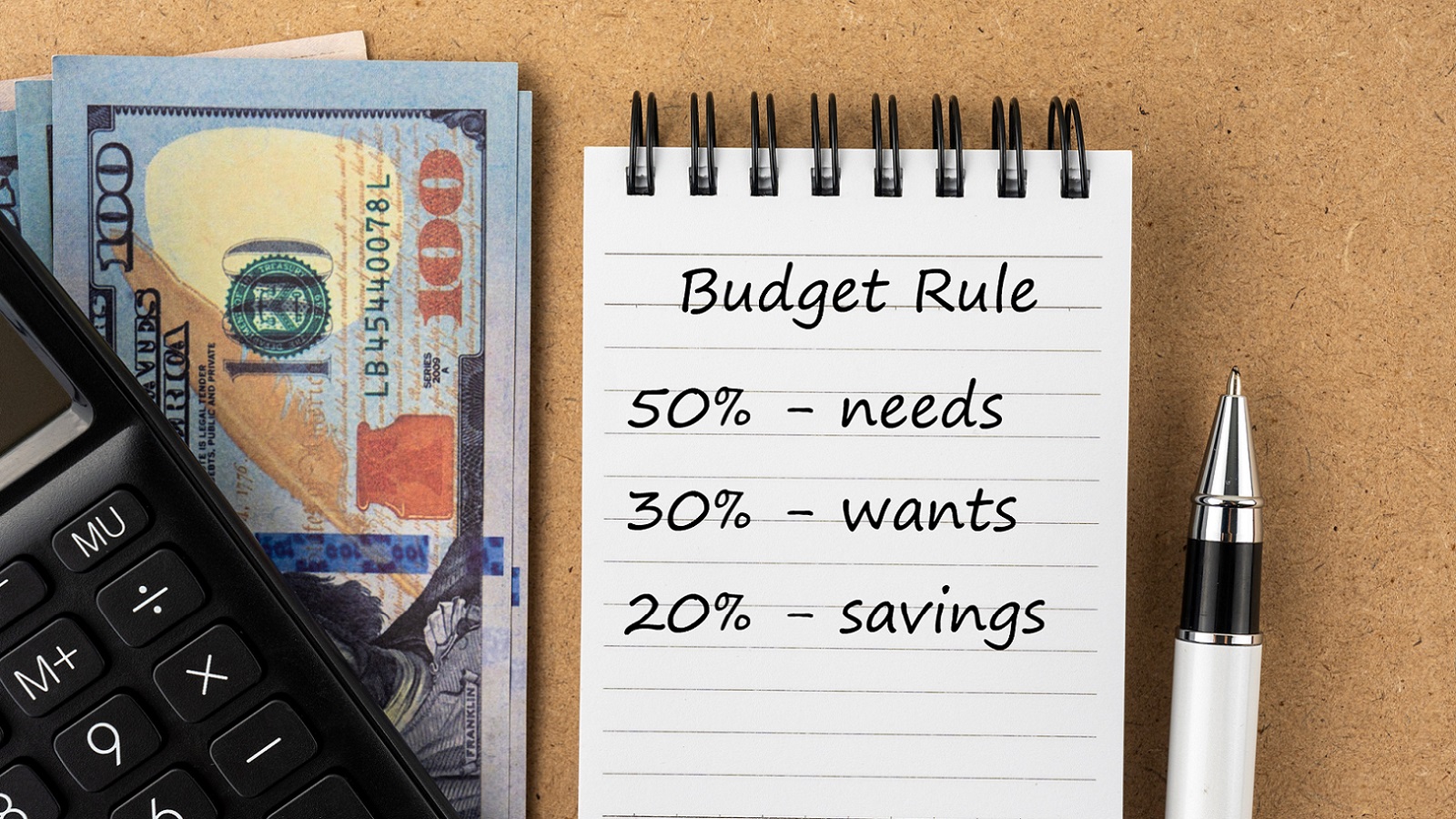5 Easy Ways to Save $1,000 by the Holidays
With some simple budget adjustments, you can scrounge up the cash to cover the holidays and avoid starting the New Year with a debt hangover.

Profit and prosper with the best of Kiplinger's advice on investing, taxes, retirement, personal finance and much more. Delivered daily. Enter your email in the box and click Sign Me Up.
You are now subscribed
Your newsletter sign-up was successful
Want to add more newsletters?

Delivered daily
Kiplinger Today
Profit and prosper with the best of Kiplinger's advice on investing, taxes, retirement, personal finance and much more delivered daily. Smart money moves start here.

Sent five days a week
Kiplinger A Step Ahead
Get practical help to make better financial decisions in your everyday life, from spending to savings on top deals.

Delivered daily
Kiplinger Closing Bell
Get today's biggest financial and investing headlines delivered to your inbox every day the U.S. stock market is open.

Sent twice a week
Kiplinger Adviser Intel
Financial pros across the country share best practices and fresh tactics to preserve and grow your wealth.

Delivered weekly
Kiplinger Tax Tips
Trim your federal and state tax bills with practical tax-planning and tax-cutting strategies.

Sent twice a week
Kiplinger Retirement Tips
Your twice-a-week guide to planning and enjoying a financially secure and richly rewarding retirement

Sent bimonthly.
Kiplinger Adviser Angle
Insights for advisers, wealth managers and other financial professionals.

Sent twice a week
Kiplinger Investing Weekly
Your twice-a-week roundup of promising stocks, funds, companies and industries you should consider, ones you should avoid, and why.

Sent weekly for six weeks
Kiplinger Invest for Retirement
Your step-by-step six-part series on how to invest for retirement, from devising a successful strategy to exactly which investments to choose.
The season of giving can take a whole lot out of your wallet. In 2014, the National Retail Federation estimates that consumers spent an average $460 just on gifts for their families. Pile on top of that all of the food, decorations, clothing and other presents most people splurge on for the holidays, and your budget is sure to get bloated.
Ideally, you'd have saved throughout the year in preparation for the pricey festivities. But even if holiday costs didn't creep into your budget until now, you still have time to tally up plenty of extra cash before Black Friday.
With our suggested strategies, we figure that you can cobble together more than $1,000 in extra savings, based on average costs and listed retail prices. Of course, how much you can actually save depends on your specific situation and which moves you make. (Check out 30 Ways to Waste Your Money for even more ideas to trim your spending.) Still, our examples go to show that you can save a grand in just two months with a few simple budget adjustments—whether you need the money for holiday spending or other financial goals.
From just $107.88 $24.99 for Kiplinger Personal Finance
Become a smarter, better informed investor. Subscribe from just $107.88 $24.99, plus get up to 4 Special Issues

Sign up for Kiplinger’s Free Newsletters
Profit and prosper with the best of expert advice on investing, taxes, retirement, personal finance and more - straight to your e-mail.
Profit and prosper with the best of expert advice - straight to your e-mail.
1. Reshop your auto insurance.
The cost of car insurance can vary greatly for each driver, and you're likely paying more than necessary. Make sure you're getting the best deal possible by comparing plans from different insurers using tools from Insurance.com, InsWeb or Nerdwallet. Monthly rates in New Jersey for my 2004 Honda CRV, for example, range from $65 to $235 on NerdWallet. You can also work with a local independent insurance agent who can shop for you; find one through TrustedChoice.com. (See 3 Simple Steps to Reshop Your Car Insurance.)
You might also be able to save if you can prove you're a good driver. For example, Progressive and Allstate respectively offer trackers Snapshot and Drivewise that monitor your track record and help you save if you practice good driving habits. (Snapshot collects your driving data for 30 days before you start saving.) Progressive estimates that safe drivers can save up to 30% off their premiums. Given an average of $1,311 for car insurance costs, that can mean more than $390 in annual savings—or about $33 each month.
Two months of savings: $340 if you switch from the priciest policy to the lowest-cost alternative
2. Eat at home.
According to the Bureau of Labor Statistics, consumers spent an average of about $2,800 on dining out in 2014—or $233 each month. Brown-bag your lunch and trade restaurant dinner dates for romantic nights this fall to cut those meal costs by two-thirds or more.
Planning and preparing your meals for the week ahead of time will help you resist the costly ease of eating out or ordering in. (See Money-Smart Ways to Eat Healthy and 10 Ways to Save Money on Groceries Without Coupons.)
Two months of estimated savings: $310+
3. Drive less.
Leave your car in the garage on workdays throughout the fall to cut daily costs on parking, gas, tolls and even the occasional ticket. If your daily commute is 10 miles round-trip and you spend $20 for daily parking (the average monthly parking rate in New York City, for example, is $445), we estimate that you can save $24.75 a day by biking instead of driving to work. Even if your savings are, say, a more modest $20 per day and if you only opt to cycle into work every other day, the savings can really add up. (Try our calculator to crunch the numbers for your own commute.) Carpooling and public transportation are other options, albeit with their own costs.
Two months of estimated savings: $200+ via 10 car-free commutes
4. Cut the cable cord.
You don't need to pay for cable to enjoy watching television. Most of your favorite shows are likely available online or through streaming services for little to no cost. According to the Federal Communications Commission, the average price for expanded basic cable TV service is $66 a month.
But many network sites share top shows for free the day after they air. Or you can subscribe to a streaming service, such as Amazon Prime, Hulu Plus or Netflix, to get access to whole libraries of shows and movies for $8 to $9 a month. If you must watch live, you can access more than 20 channels—including AMC, the Disney channel and ESPN—and still save by using Sling TV for $20 a month.
Two months of savings: $132
5. Trim your cell phone bill.
Leaving your mainstream wireless carrier can save you a bundle. With Straight Talk Wireless, you can get a 30-day cell-phone plan for just $45 that includes unlimited talk, texts and data. By comparison, Verizon offers no such limitless plan, but does have a 12GB data option, which the company deems suitable for what it calls "big-time data users," for $80 a month that includes unlimited talk and text. (See Best Cell-Phone Plans for Every Type of User.)
Two months of savings: $70
TOTAL POTENTIAL SAVINGS: $1,052+
Profit and prosper with the best of Kiplinger's advice on investing, taxes, retirement, personal finance and much more. Delivered daily. Enter your email in the box and click Sign Me Up.

Rapacon joined Kiplinger in October 2007 as a reporter with Kiplinger's Personal Finance magazine and became an online editor for Kiplinger.com in June 2010. She previously served as editor of the "Starting Out" column, focusing on personal finance advice for people in their twenties and thirties.
Before joining Kiplinger, Rapacon worked as a senior research associate at b2b publishing house Judy Diamond Associates. She holds a B.A. degree in English from the George Washington University.
-
 Nasdaq Leads a Rocky Risk-On Rally: Stock Market Today
Nasdaq Leads a Rocky Risk-On Rally: Stock Market TodayAnother worrying bout of late-session weakness couldn't take down the main equity indexes on Wednesday.
-
 Quiz: Do You Know How to Avoid the "Medigap Trap?"
Quiz: Do You Know How to Avoid the "Medigap Trap?"Quiz Test your basic knowledge of the "Medigap Trap" in our quick quiz.
-
 5 Top Tax-Efficient Mutual Funds for Smarter Investing
5 Top Tax-Efficient Mutual Funds for Smarter InvestingMutual funds are many things, but "tax-friendly" usually isn't one of them. These are the exceptions.
-
 I Need to Cut $1,000 From My Monthly Budget, and I've Already Given Up Starbucks and Dining Out. What Else Can I Do?
I Need to Cut $1,000 From My Monthly Budget, and I've Already Given Up Starbucks and Dining Out. What Else Can I Do?Here are some creative ways to save up to $1,000 a month, even if you feel like you've already made all of the obvious cuts.
-
 I'm a Government Employee and Need to Get By Until the Shutdown Ends. What Can I Do?
I'm a Government Employee and Need to Get By Until the Shutdown Ends. What Can I Do?The second-longest shutdown in history is leaving many federal workers with bills due and no paycheck to cover them. Here's what you can do to get by.
-
 What Does Medicare Not Cover? Eight Things You Should Know
What Does Medicare Not Cover? Eight Things You Should KnowMedicare Part A and Part B leave gaps in your healthcare coverage. But Medicare Advantage has problems, too.
-
 Five Ways to Save on Vacation Rental Properties
Five Ways to Save on Vacation Rental PropertiesTravel Use these strategies to pay less for an apartment, condo or house when you travel.
-
 How to Avoid Annoying Hotel Fees: Per Person, Parking and More
How to Avoid Annoying Hotel Fees: Per Person, Parking and MoreTravel Here's how to avoid extra charges and make sure you don't get stuck paying for amenities that you don't use.
-
 The 50-30-20 Budget Rule: A Simple Way to Save Money
The 50-30-20 Budget Rule: A Simple Way to Save MoneySaving Using the 50-30-20 budget rule is an easy way to save. It helps you prioritize saving while paying off debt.
-
 'Food Tax': Which States Still Tax Groceries?
'Food Tax': Which States Still Tax Groceries?State Tax Ten states still tax groceries, but that figure is shrinking.
-
 How Our Family Fights Inflation
How Our Family Fights InflationBudgeting Millennials typically spend more than other generations on certain expenses that have been increasing most rapidly. Here are some tips to cut your losses.